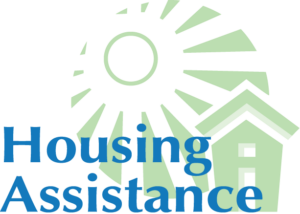 HYANNIS – A new pilot program is giving primary care providers on Cape Cod a better way to help their patients with mental health issues. By calling a consultation line, providers can consult with a psychiatric expert and get immediate guidance on treatment options.
HYANNIS – A new pilot program is giving primary care providers on Cape Cod a better way to help their patients with mental health issues. By calling a consultation line, providers can consult with a psychiatric expert and get immediate guidance on treatment options.
“It is our hope that we can assist the primary care providers and their patients develop a treatment plan right there in the office. We predict that this will help to increase patient and provider satisfaction, avoid referrals to the Emergency Department, and will also help open access to an overburdened outpatient psychiatric system”, said Daria Hanson, MD, chief of psychiatry and medical director of the Cape Cod Healthcare’s Centers for Behavioral Health.
The pilot program was started in April of 2017 and was modeled after a government and grant-funded program called Massachusetts Child Psychiatry Access Program (MCPAP) that is available to pediatricians across Massachusetts. The goal of both programs is to support the integration of behavioral and physical health.
Local physicians and other healthcare practitioners learned more about the pilot project at a recent panel discussion that was part of a quarterly continuing medical education (CME) series for physicians sponsored by Cape Cod Healthcare. The mission of the CME series is summed up in its ongoing title: “Closing the Gap: Primary Care & Behavioral Health.”
After the audience listened to two lectures designed to educate them on the assessment and treatment of mood disorders there was then a panel discussion that further focused on the pilot program. The panel discussion entitled “Real-Time Psychiatric Consultation for Primary Care,” was moderated by Kumara Sidhartha, MD, former medical director of Emerald Physicians and currently the medical director of Cape Cod Healthcare’s Physician Hospital Organization and CCHC Accountable Care Organization.
The panelists were:
Munir Ahmed, MD, primary-care physician with Emerald Physicians.
Timothy Breitholtz, MD, medical director, Outpatient Psychiatric Services, Cape Cod Healthcare
Daria Hanson, MD, chief of psychiatry and medical director of Cape Cod Healthcare’s Centers for Behavioral Health
Elizabeth Lynch, manager of operations, Cape Cod Healthcare’s Centers for Behavioral Health
Sarah Simonelli, RN, Behavioral Health registered nurse case manager with Cape Cod Healthcare’s “Helping Hands” Program.
Patient Story
Dr. Ahmed began the discussion by describing a recent case history. In a three-way conference call, Dr. Ahmed had shared his patient’s history with Dr. Hanson who later conferenced in Simonelli. The patient, who had experienced trauma and depression, was referred to Dr. Breitholtz for immediate and ongoing psychiatric care. The patient was seen the same day in the outpatient psychiatric clinic.
During his first appointment, the patient “was severely agitated, pacing about the room and holding his head in his hands,” said Dr. Breitholtz. “His suffering was extreme but he was able to finally sit with me and tell me his situation. We were able to come up with a plan for his treatment. In this case, we averted a trip to the emergency center and a possible psychiatric crisis.”
Later the same day and over the course of several weeks Simonelli connected the patient with a peer support group and worked with Dr. Ahmed and Dr. Breitholtz to monitor his medications and treatment.
“It was a good case of coordinated care,” said Dr. Breitholtz. “We had each other to lean on.”
“Just one phone call, like we saw in this example, can bring in a team of experts to care for a patient with a multi-disciplinary approach,” said Dr. Sidhartha. “This improves better integration of systems within a system.”
Lynch presented data from the first three months (April-July 2018) of the pilot program, when there were 53 consultations for 50 different patients.
Most of the consultation calls lasted under 20 minutes. The most common diagnoses were major depression, anxiety and geriatric dementia. Nearly one in five of the patients had suicidal thoughts or suicidal history.
Avoid the ER
One of the goals of the program is diverting patients from emergency department visits to less acute care. Just over half of the consultations resulted in new medications or a change in medications. Many of the patients stayed under the immediate care of their primary care physician, but more than half were fast-tracked to behavioral health care.
One doctor spoke from the audience about his experience:
“It was incredibly expeditious, to the point, and fast. You had the people to go to for advice and that gave me the confidence to help my patient. I appreciate it.”
Speaking of the need to have enhanced communication between primary care and specialty care, Dr. Hanson said, “We don’t want to have siloed care. Together we can develop and implement a treatment plan. Please use us as a connector. We’ll take the case and run with it, and we’ll email you an update.”
Dr. Sidhartha said that more data will be collected in coming months to understand the feasibility of scaling up.
“We’ll continue to assess the efficiency of the program and its effects on patient and provider satisfaction, visits to the emergency department, and referrals to outpatient psychiatric care” he said.
Other presenters during the evening session on Sept. 6 at the Cape Codder Resort & Spa were Douglas Munsey, MD, medical director of Inpatient Psychiatry and Partial Hospital Programs, Cape Cod Hospital, who spoke on “Assessment and Treatment of Depressive Disorders,” and Benalfew T. Legesse, MD, medical director of Psychiatric Consultative Liaison Services, Cape Cod Hospital, who spoke on “Assessment and Treatment of Bipolar Disorders.”






















